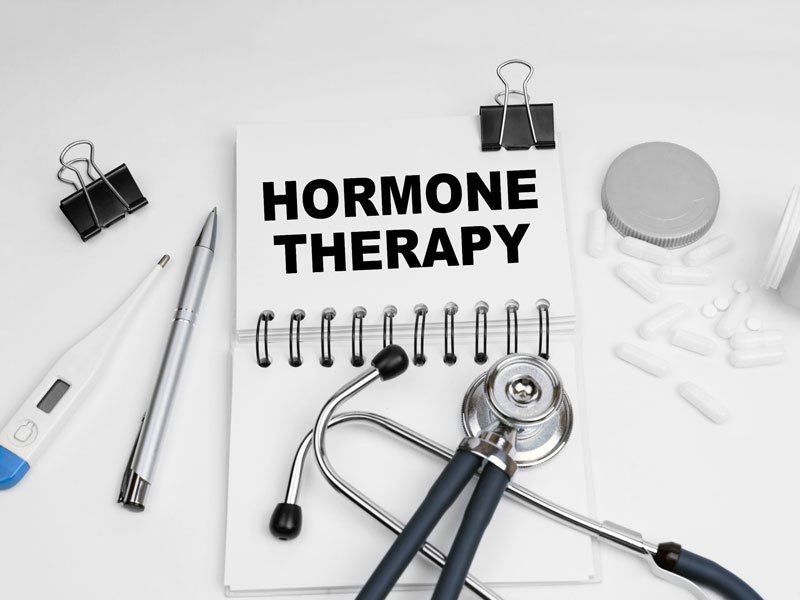Menopause marks a transformative period in a woman’s life—but the symptoms that accompany it, such as hot flashes, fatigue, mood swings, and sleep disturbances, can seriously impact daily living. Menopause Hormone Therapy (MHT) offers one of the most effective treatments to restore balance and improve well-being. South Korea, with its highly developed healthcare infrastructure and patient-centered care, has become a go-to destination for women worldwide seeking expert menopause treatment.
If you’re considering Korea for MHT, here’s a step-by-step guide to help you plan your medical trip smoothly—from choosing a clinic to booking follow-up care after your return home.
✈️ Step 1: Decide Why Korea Is Right for You
Before making any plans, confirm that Korea aligns with your personal and medical needs. Consider Korea if you’re looking for:
- Affordable yet high-quality hormone therapy
- English-speaking medical professionals
- Fast diagnosis and treatment (no long waiting times)
- A modern and private environment for women’s health concerns
- Holistic care including anti-aging, nutrition, and integrative therapy
✅ Korea combines medical precision with patient comfort, especially for foreign patients seeking discreet and efficient care.
🔍 Step 2: Research and Shortlist Certified Clinics
Choose a MOHW-registered clinic with certified hormone specialists. Look for board-certified OB-GYNs or endocrinologists affiliated with:
- Korean Society of Menopause (KSM)
- North American Menopause Society (NAMS)
- Korean Society of Obstetrics & Gynecology (KSOG)
Recommended Clinics:
- G Clinic (Gangnam): Specializes in hormone balancing, anti-aging, and sexual wellness.
- CHA Gangnam Women’s Hospital: Advanced diagnostics with holistic menopause treatment.
- Banobagi Women’s Health Center: Offers both hormone therapy and feminine rejuvenation procedures.
- Severance Hospital: University-affiliated hospital with full medical concierge services.
📩 Contact these clinics through their websites or international patient portals to request:
- Doctor credentials
- Available treatment plans
- Cost estimates
🗓️ Step 3: Schedule a Virtual Consultation
Many Korean clinics offer online consultations for medical tourists. This helps the doctor evaluate your symptoms and recommend initial lab work or scans you can complete in your home country.
Prepare for your online consult by collecting:
- Recent blood test results (especially hormone levels, cholesterol, and liver function)
- Medical history (including menopause symptoms and any previous hormone therapy)
- Current medications
- Menstrual history (for perimenopausal patients)
💡 During your consultation, ask about the type of hormone therapy best suited to your case (oral, patch, cream, bioidentical, etc.)
📅 Step 4: Create a Travel & Treatment Itinerary (5–7 Days)
Plan your trip for at least 5 days to complete evaluations, begin therapy, and allow recovery or adjustment time.
Sample Schedule:
- Day 1: Arrival and hotel check-in
- Day 2: Blood tests, physical exam, imaging (pelvic ultrasound, DEXA scan, mammogram)
- Day 3: Follow-up consultation and treatment planning
- Day 4: Begin hormone therapy + integrative treatments (e.g. IV nutrition)
- Day 5–6: Optional check-up or adjustments to medication
- Day 7: Departure
Choose accommodations near the clinic or in medical tourist-friendly areas like Gangnam, Apgujeong, or Seocho, where many top women’s health centers are located.
🧳 Step 5: Pack Smartly for Your Medical Trip
Here’s what to bring:
- Passport, visa (if required), flight itinerary
- Comfortable clothing and shoes
- Copies of medical records and prescriptions
- List of symptoms and menopause tracking (a journal or app)
- Translator app (optional, though many clinics have English-speaking staff)
- Travel insurance with international medical coverage
✈️ Consider direct flights to Seoul (Incheon International Airport) or Busan (Gimhae Airport) depending on your clinic’s location.
🏨 Step 6: Book Menopause-Friendly Accommodations
Look for:
- Hotels near the clinic or with easy access via taxi/subway
- Quiet rooms with blackout curtains for better sleep
- Nearby pharmacies or convenience stores
- In-room kitchenettes or healthy room service menus
Many medical tourists prefer recovery hotels that cater to patients with private nurses, meal plans, and transport assistance.
💊 Step 7: Understand Your Treatment Plan
Once your hormone therapy begins, your clinic will provide:
- A medication plan (daily dosage and timing)
- Diet and lifestyle recommendations
- A list of side effects to watch for
- Emergency contact numbers
- Instructions for monitoring symptoms after your return home
Treatment may include:
- Estrogen-only or combination estrogen-progesterone therapy
- Bioidentical hormone therapy (BHRT)
- Vaginal estrogen (cream or ring)
- Supplementary care like bone support, anti-aging IV therapy, and sleep regulation
🔁 Most patients are advised to return for check-ups every 3–6 months, or schedule virtual follow-ups via Zoom or KakaoTalk.
💻 Step 8: Arrange for Post-Treatment Support at Home
Your Korean clinic should provide:
- English-language medication guides
- Medical reports and prescription letters
- Virtual follow-up appointments
- Optional international shipping of medication refills
You can also consult with a local doctor or endocrinologist to continue treatment based on the Korean doctor’s plan.
💬 Bonus: Make the Most of Your Wellness Trip
While in Korea, consider combining menopause care with wellness experiences:
- Spa therapy: Jjimjilbang (Korean sauna) or aromatherapy massage
- IV infusions: For energy, hydration, and antioxidant support
- Oriental medicine: Korean herbal support for hormonal balance
- Cultural sightseeing: Palaces, museums, and nature walks to reduce stress
Final Thoughts
Planning a menopause hormone therapy trip to Korea may feel daunting, but with the right preparation and a supportive clinic, it can be a deeply empowering, safe, and life-improving experience. Korea’s unique blend of medical precision, affordability, and holistic care makes it one of the best countries in the world for menopause treatment.




